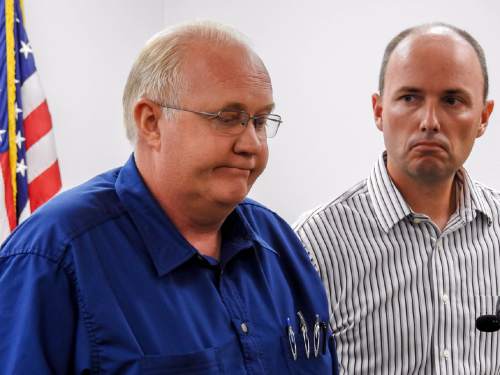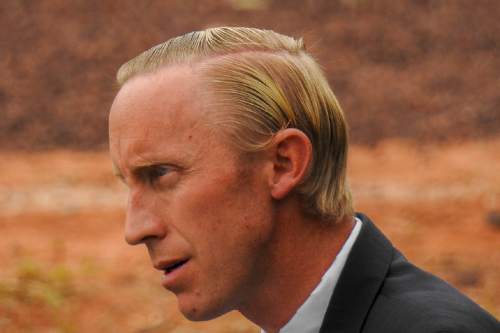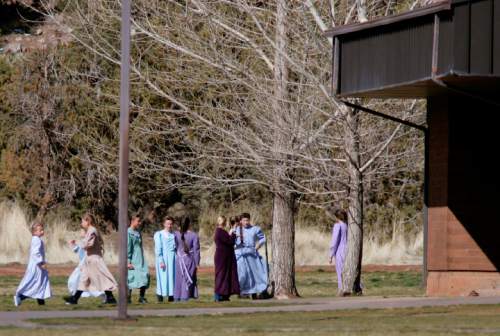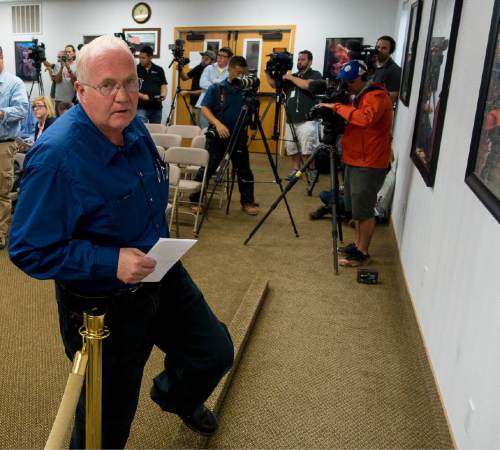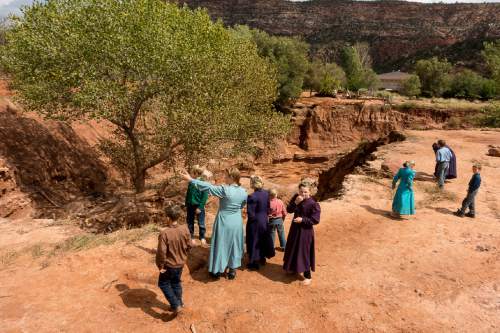This is an archived article that was published on sltrib.com in 2016, and information in the article may be outdated. It is provided only for personal research purposes and may not be reprinted.
Phoenix • Two polygamous towns on the Utah-Arizona border violated the constitutional rights of nonbelievers by denying them basic services such as police protection, building permits and water hookups, a jury said Monday.
The civil rights trial marks one of boldest efforts by the government to confront what critics have long said was a corrupt regime in Colorado City, Ariz., and Hildale, Utah. The seven-week trial provided a rare glimpse into the communities that for years have been shrouded in secrecy and are distrustful of government and outsiders.
The jury, which reached a verdict on its fourth day of deliberations, awarded $2.2 million to six residents eligible for damages. But the towns will have to pay only $1.6 million because lawyers negotiated a settlement in that part of the case.
The judge will now decide what other punishments to impose. Federal authorities have not specified the changes they will seek, but they could ask for the Colorado City Marshal's Office to be disbanded and for its duties to be handed over to local sheriffs.
Richard Holm, who was awarded damages, hailed the verdict as a step in denting the sect's control over the towns but said the verdict will be hollow if the judge doesn't disband the marshal's office.
"For there ever to be a decent community, there's got to be new faces, new control," said Holm, who left the sect in 2003 but still lives in the area.
Town leaders will abide by whatever changes are ordered by the judge, Colorado City attorney Jeff Matura said, but the government's actions won't change people's religious beliefs.
"There is nothing that the government can do or really should be able to do to change someone's faith," Matura said.
The towns were accused of doing the bidding of the Fundamentalist Church of Jesus Christ of Latter-Day Saints, a radical offshoot of mainstream Mormonism, which disavowed polygamy more than 100 years ago. The trial came as the federal government waged fights on multiple fronts to rein in church activities.
A grand jury in Utah has indicted several church leaders on charges of food stamp fraud. A judge on Monday ordered the man who runs the day-to-day operations of the sect to stay behind bars until trial in that case.
The U.S. Labor Department has a separate action against a ranch with ties to the church over a pecan harvest in which children were forced to work long hours with few breaks.
During the civil rights case, the Justice Department said town employees assisted the group's leader when he was a fugitive and took orders from church leaders about whom to appoint to government jobs.
They say local police ignored the food stamp fraud scheme and marriages between men and underage brides.
The jury found the marshal's office violated the rights of nonbelievers by breaking the First Amendment's promise that the government won't show preference to a particular faith and force religion upon people.
Jurors concluded officers treated nonbelievers inequitably when providing police protection, arrested them without having probable cause and made unreasonable searches of their property.
One woman who was denied a water connection testified that she had to haul water to her home and take away sewage for six years. A former sect member said police ignored hundreds of complaints of vandalism on his horse property because he was no longer part of the church.
"Today's verdict reaffirms that America guarantees all people equal protection and fair treatment, regardless of their religious beliefs," said Principal Deputy Assistant Attorney General Vanita Gupta, head of the Justice Department's Civil Rights Division. "When communities deny their residents critical services simply because of where they worship, they violate our laws and threaten the defining values of religious freedom and tolerance that are the foundation of our country."
Utah Attorney General Sean Reyes lauded the jury's decision in a statement, saying it was "an important step toward ensuring that citizens in Hildale and Colorado City are treated equally by the cities regardless of their religious beliefs."
The towns deny the allegations and say the government is persecuting town officials because it disapproves of their religion.
"If this was any other community in America, this would not be happening at this level," Hildale attorney Blake Hamilton said after the verdict. "The scrutiny these communities have been under is just unprecedented."


